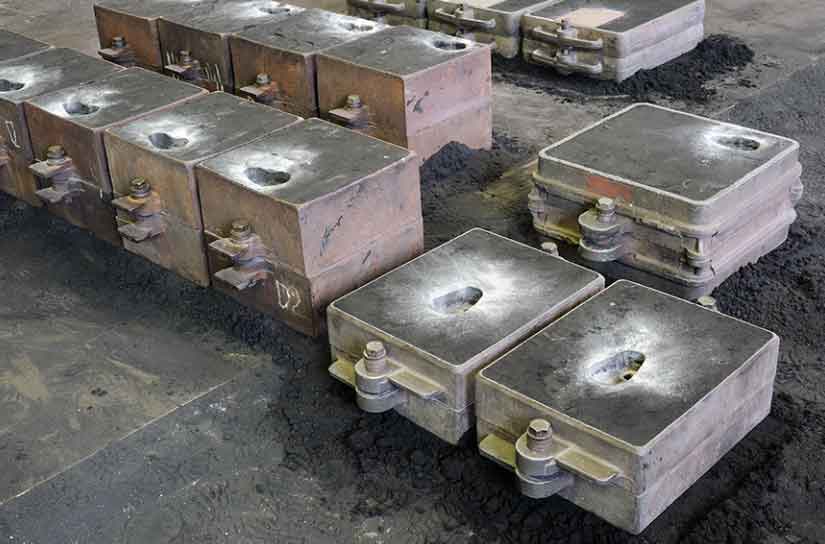
Resin sand casting is a versatile metal casting process that plays a vital role in shaping modern manufacturing. The process involves creating sand molds using a mixture of sand and resin, which is then used to cast metal parts. Here’s how resin sand casting shapes modern manufacturing:
- Design Flexibility: Resin sand casting allows engineers and designers to create complex and intricate part geometries with high precision. This flexibility in design enables the production of customized components tailored to specific application requirements.
- Prototyping and Rapid Iterations: Resin sand casting is well-suited for rapid prototyping. It enables the quick production of functional prototypes, allowing designers to evaluate and refine their designs before proceeding to mass production.
- Efficiency in Small to Medium-Scale Production: Resin sand casting is cost-effective for small to medium-scale production runs, making it a practical choice for various industries that require moderate quantities of components.
- Wide Range of Materials: The process can be used with various metals, such as iron, steel, aluminum, brass, and bronze. This versatility makes resin sand casting applicable across diverse industrial sectors.
- Improved Surface Finish: Resin sand casting can achieve high-quality surface finishes, reducing the need for extensive post-processing and enhancing the final product’s appearance.
- Dimensional Accuracy and Tight Tolerances: The use of precise pattern-making techniques and high-quality molds ensures excellent dimensional accuracy and tight tolerances in the cast components.
- Sustainable Manufacturing: Resin sand casting produces less waste compared to other casting methods, making it a more environmentally friendly option. Additionally, sand can be recycled and reused in the casting process.
- Consistency and Repeatability: Once a mold is created, it can be reused multiple times, ensuring consistent quality in each casting and streamlining production.
- Wide Range of Applications: Resin sand casting is employed in various industries, including automotive, aerospace, agriculture, construction, and machinery, among others. It contributes to the production of critical components in these sectors.
- Supporting Complex Assembly: Resin sand casting can produce large, single-piece components, reducing the need for complex assembly of multiple smaller parts.
- Quality Control and Testing: Modern manufacturing techniques, such as computer simulations and non-destructive testing, are applied to ensure the quality and integrity of castings.
- Advancements in Automation: Automation and robotics have been integrated into the resin sand casting process to enhance efficiency and reduce human errors.
Resin sand casting serves as a crucial method in modern manufacturing, combining design flexibility, cost-effectiveness, and sustainability to meet the evolving demands of various industries. Its ability to produce high-quality and intricate metal components has made it an indispensable part of the manufacturing landscape.
